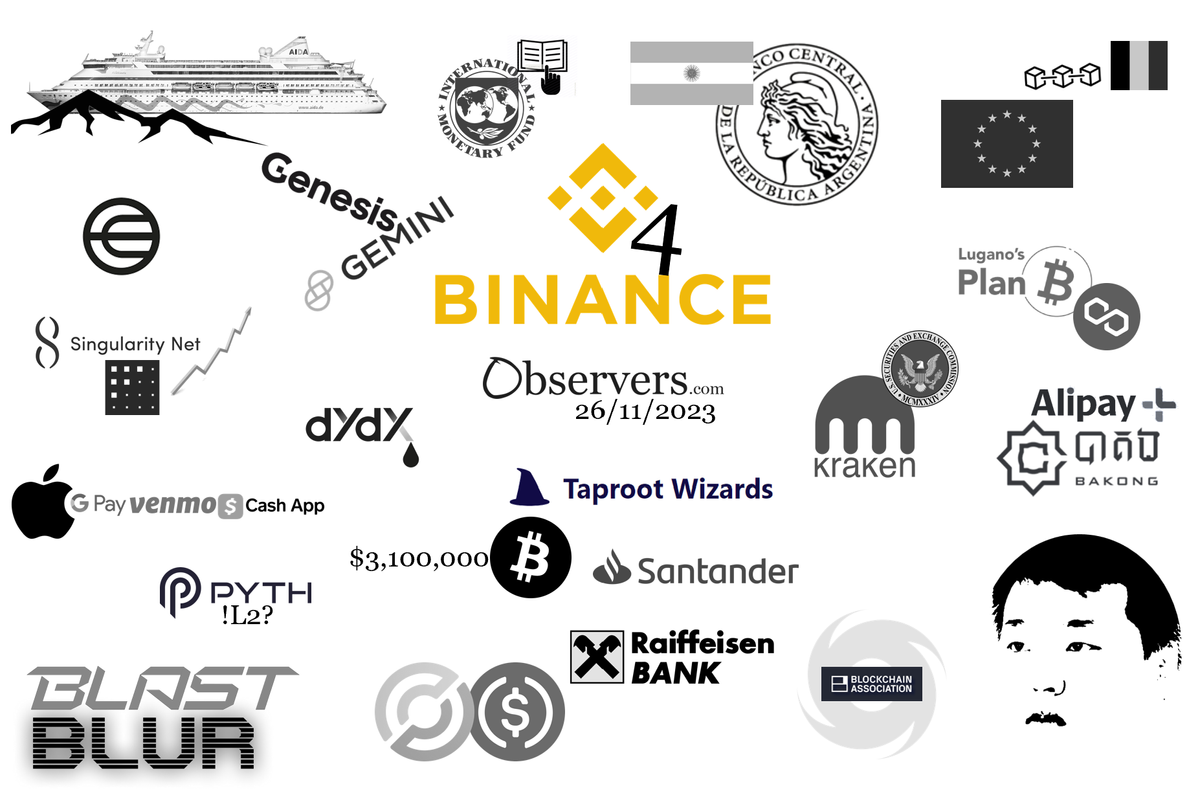
A select group of wealthy pensioners faced extreme disappointment this week, as they discovered that the three-year world cruise they were looking forward to had been canceled. Some members of the group had sold or rented out their homes and possessions ahead of the trip, which was originally scheduled to depart from Istanbul on November 1.
However, after several delays, the prospective passengers were informed that the cruise would not be going ahead, as the company could not afford the cost of the ship that it had planned to buy. But who has been sticking to the plan in the crypto world this week, and who has simply missed the boat? Read on to find out...
AI-related tokens surged early in the week, based on speculation around potentially bullish signals from Elon Musk, and a rumor that the recently deposed CEO Sam Altman might rejoin OpenAI. After Altman's return was confirmed, AI-skeptics had little left to reassure them, except perhaps Altman's other venture, Worldcoin, which among other things aims to improve the identification of genuine humans online.
Binance resolved its long-standing issues with the U.S. DoJ this week, accepting a record-breaking $4.3 billion fine and the enforced removal of head honcho CZ, who also pleaded guilty to money laundering charges. The outcome could well be the best possible result for the exchange, as a feared 'exchange run' never really materialized, and the BNB token price finished the week only slightly down from where it started.
Also involved in legal action this week: Kraken, which found itself the latest target of unregistered securities exchange allegations from the SEC (who else?); Apple, which faces a class-action suit over alleged anti-competitive practices regarding peer-to-peer payment apps; the Blockchain Association, which challenged sanctions on Tornado Cash, stating that it was simply a neutral tool and the legal focus should be on those that misuse it; and Gemini and Genesis, which continue to trade legal blows following the fallout of the FTX collapse.
The Taproot Wizards NFT-like project using Bitcoin Ordinals technology raised $7.5 million in a funding round, sending a fresh wave of traffic to the Bitcoin network, all eager to get in on the Ordinals action. Not so eager to see such congestion on the Bitcoin network was the anonymous user who inadvertently paid a record $3.1 million transaction fee, potentially through using the 'replace by fee' function to jump the mempool queue.
The new Argentinian president elect has some challenges ahead if he is to actually enact key policies such as disbanding the central bank, but cryptocurrency looks set to gain, whatever the eventual outcome for the country's economy. Meanwhile, Belgium plans to use its stint as president of the Council of the European Union to push a public-sector blockchain initiative to securely store and manage documentation such as driving licenses and property deeds.
Cambodia's CBDC-like Bakong payment system teamed up with China's Alipay+ to offer users of either platform access to merchants and users of the other. Additionally, our banking and CBDC roundup covered Santander Private in Switzerland and Raiffeisen in Austria opening up crypto trading to selected clients, U.K. authorities getting behind the tokenization of investment funds, and a South Korean CBDC pilot set to involve 100,000 citizens... although not until Q4 2024.
South Korean authorities will have also been pleased to hear that their Montenegrin counterparts have agreed to the extradition of ex-Terra boss Do Kwon. Not that he is guaranteed to go directly back to South Korea, as the U.S. has also made a request for extradition and a decision is yet to be made over which holds more authority.
Decentralized exchange dYdX was the victim of a targeted attack earlier in the week, causing it to lose 40% of its insurance fund. The alleged market manipulation has led the exchange to ban "highly profitable trading strategies" which can't be a good look for attracting new customers.
Solana-based Oracle provider Pyth launched its own token this week, with an airdrop of 250 million (worth $87 million) earmarked for the Pyth community. Meanwhile, the founder of leading NFT market Blur announced a new Layer 2 scaling solution Blast, which attracted $320 million of deposits within days on the promise of high yields and a token airdrop.
Circle announced its 'Bridged USDC Standard' to quickly get the stablecoin up and running on new platforms, with a roadmap to official adoption as the networks grow. And finally, the Swiss city of Lugano has added the Polygon network to its popular crypto payments app as part of its Plan ₿ scheme. 30,000 citizens (representing almost half the city's population) have been gently lured into the crypto economy via an easy-to-use cashback program, and have now received the keys to the whole kingdom.
They must be thrilled that they didn't blow all their savings on a three-year cruise without a ship.
